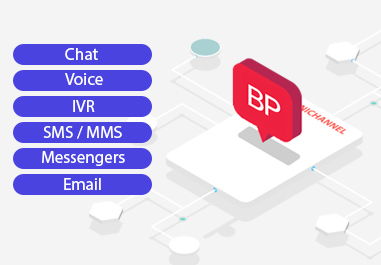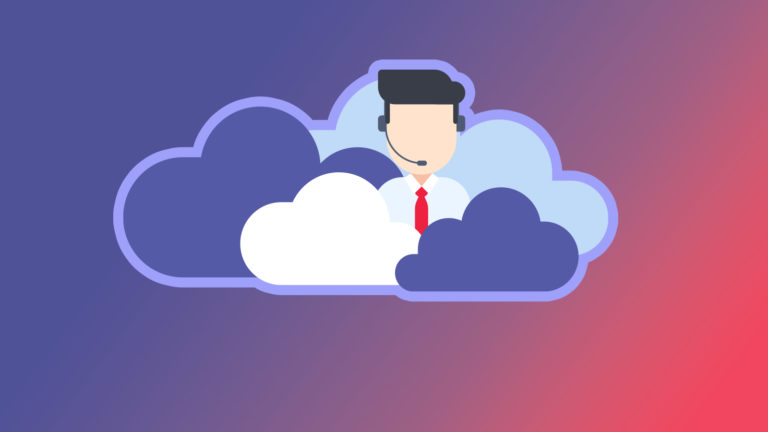As the healthcare industry moves past the pandemic, the effects of its rapid shift to digitization linger—and are likely to stay forever. Clients expect healthcare providers to provide seamless digital experiences. Clinics, hospitals, and other caregivers failing to meet new service standards will find themselves losing customers to their competitors in short order.
The solution? A full-featured contact center prepared to meet the challenges of modern healthcare.
Here are the most crucial features call centers for healthcare should have to assist customers effectively:
1. Self-Service Portals
Service-service portals let patients solve problems without speaking to a live agent. By offloading repetitive tasks like appointment scheduling, prescription referrals, and checking test results, your agents have more time to focus on critical issues.
Reducing agent workload also reduces callers’ time on hold, enhancing the overall patient experience.
2. Conversational AI
99% of large enterprises see scaling as a crucial application of AI.
Conversational AI uses chatbots and interactive voice response (IVR) to handle simple tasks like making appointments and answering basic questions (e.g., hours of operation). This frees up representatives to handle more complex tasks, like billing issues.
3. Automatic Call Distribution
Automatic call distribution, also known as skill-based routing, ensures each call routes to the best-qualified representative. You can base this on caller location, time of day, language, type of question, and more.
Automatic call distribution drastically boosts the efficiency of your healthcare call center by ensuring each caller connects to the right person from the first connection.
4. HIPAA Compliance
HIPAA compliance is mandatory for any contact center in healthcare dealing with patient data.
Your healthcare call center software needs security features like automatic logouts, number masking, and data encryption to protect patient privacy. It should also minimize the margin for human error, helping staff stay compliant with data privacy protocols.
5. Reporting and Analytics
Reporting and analytics tools empower managers to track call centers for healthcare performance and identify areas for improvement. They can leverage this data to adjust staffing levels, call routing, and self-service options.
Tracking performances also helps managers find patterns and trends in patient calls. Your firm can use this data to improve overall call center healthcare efficiency.
6. Predictive Dialing
Predictive dialing, or auto-dialing, boosts call center efficiency by automatically dialing numbers from your list of leads. It also improves contact rates by dialing multiple numbers simultaneously and connecting representatives with the first person to answer the phone.
Both of these features eliminate much of the wasted time agents spend waiting for someone to pick up, massively boosting productivity.
7. Localized Calling
Localized calling lets your agents route calls through local phone numbers.
This helps build trust with patients by giving them a local number to call since they’re familiar with it. This trust is especially important for patients living in rural areas since they’re less likely to trust an out-of-state number.
8. IVR Systems
Interactive voice response (IVR) systems automate simple call center tasks, like making appointments and taking messages. It integrates with conversational AI to provide callers with on-demand, human-like experiences to their great satisfaction.
And when a caller has an issue beyond the IVR’s ability to handle, it’ll automatically use AI-powered skill-based routing to route them to the best-qualified agent.

9. Number Portability
Number portability ensures your patients can reach you no matter where they are. They can connect with your representative from any phone, whether it’s their home, mobile, or work phone.
Number portability gives your firm a competitive advantage by making it as convenient as possible for patients to receive service, regardless of location.
10. Compliance with Local Regulations
In the United States, health insurance companies follow regulations at the federal and state level. This often requires different processes for different states, making it essential for your firm to understand all relevant laws.
Your healthcare call center software needs the flexibility to adapt to these changes quickly to ensure your firm can always provide excellent customer service.
11. API Integration
An API is a set of programmatic rules for accessing a software application. API integration lets your healthcare call system integrate with your other applications, providing a seamless, cohesive experience for callers across the board.
12. Scalability
Your healthcare call center needs to scale with you without any interruptions.
Scalable contact center software is:
- Cloud-based, with no on-site set-up and maintenance required.
- Modular, allowing you to add and drop features as needed without interruption.
- Flexible, letting you easily add more phone lines, users, and features as your call center grows.
Flexibility ensures you never overspend on services you don’t need and always have access to the features you do.
13. Ease of Use
Call centers need to be easy to use, with an intuitive interface that doesn’t require intensive training to master. Ease of use helps you avoid headaches with onboarding new hires and dramatically reduces your training costs.
Plus, it empowers employees to be more productive since they can focus on doing their jobs instead of remembering complex processes.
14. Customer Support
No matter how intuitive or effective a contact center is, it should have support staff available 24/7 to resolve any issues you face. Otherwise, contact center downtime will hurt your bottom line by preventing your representatives from connecting with patients.
15. Remote-Friendliness
Since the Pandemic, the demand for remote-friendly call center solutions has risen dramatically. Now, customers expect to receive the same level of customer service from their homes that they would in person.
Call center solutions must be cloud-based and accessible from anywhere to ensure your company always provides excellent customer service.
16. Omnichannel Capabilities
Omnichannel contact centers enable callers to connect with your clinic through your website, social media, phone calls, text messages, and more.
Customers can use their preferred channel to get in touch and follow up on any other medium. Agents get the full context of every interaction to provide a seamless experience for unprecedented customer satisfaction.
Choose Bright Pattern for Healthcare Call Center Software
When considering how to improve customer service in healthcare, your first priority should be your contact center. Bright Pattern’s platform offers self-service portals, conversational AI, automatic call distribution, analytics tools, and more to elevate your client care experience to new heights.
We deliver our award-winning service with industry-leading deployment times. This empowers your organization to overhaul your contact experience quickly and without interruption.
You’re welcome to survey the competition, but we’re confident you’ll find our offerings to be the best on the market. Schedule a demo today and learn what we can do for you first-hand.





